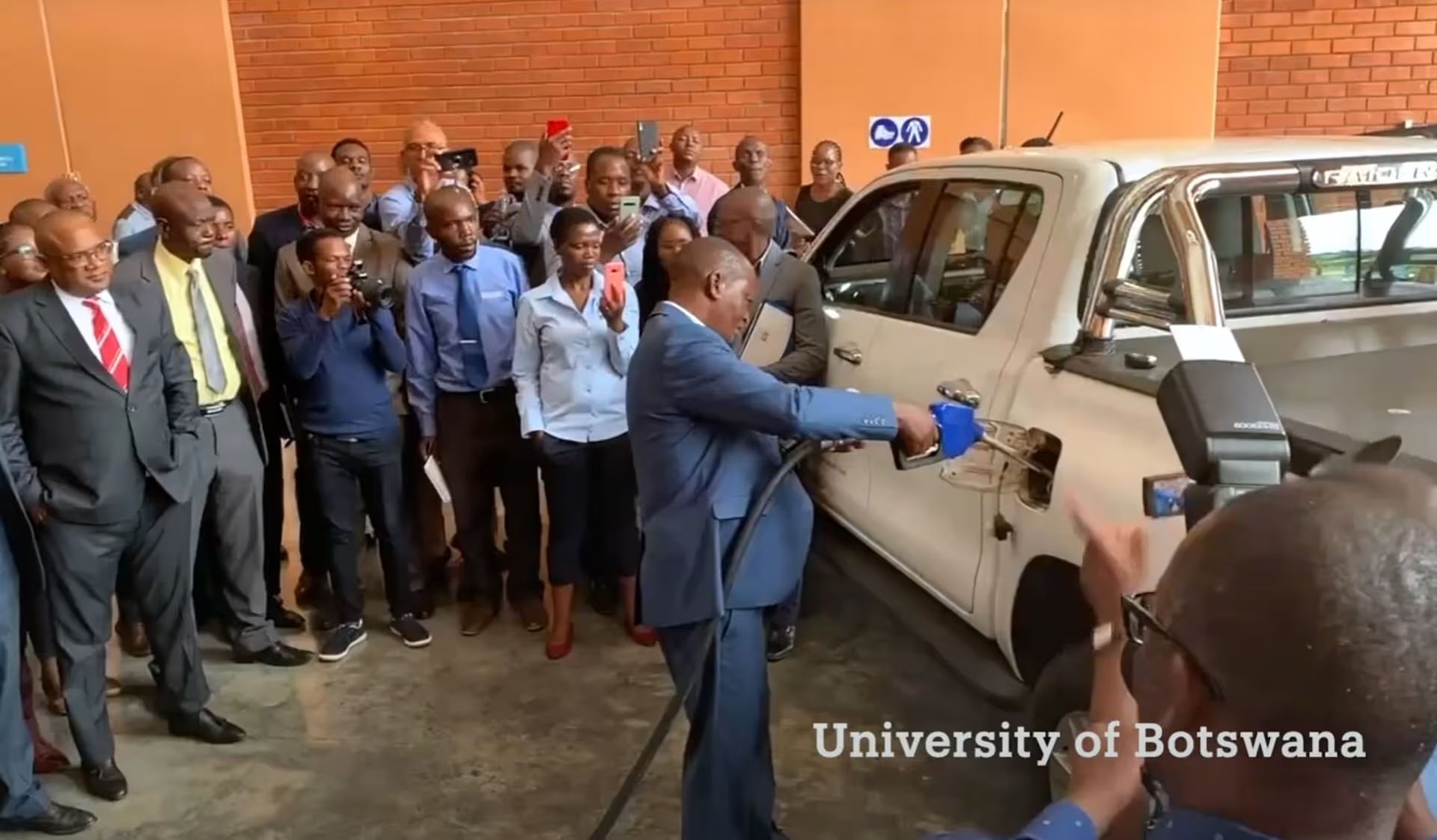Professor Clever Keylogetswe called me this morning from the University of Botswana. His voice and accent is incredible and it's always good to talk with him. (To hear his voice and hear about his program in his words, skip to minute 3:08 of the following video: youtube.com/watch?v=1dAWzYISJOs.)
I’ve known the professor since 2020, when, just before the pandemic hit, in February, I travelled to the capital, Gaborone, to work with his team of staff and students to convert a broad range of feedstock oils into biodiesel in their brand new BioPro 380EX.
When the professor called this morning, he was calling to give me an update about the recent price hike for retail diesel in Botswana. “It’s now 17 Pula per liter” he said exasperated. (That’s the equivalent of $4.72 per gallon stateside). I told him I felt his pain. He was shocked at the cost of diesel in California – as high as $7.00 per gallon on the coast.
It seems that BERA, the Botswana Energy Regulation Authority, issued an edict several days earlier that a pending price hike would start at midnight on Sept 13, (facebook.com/BotswanaEnergyRegulatoryAuthority) and, as a consequence, there was “panicked buying” at the pumps for 24 hours before the deadline.
When the price hike finally took effect at midnight, yesterday, there was no more diesel left to pump. Every last drop had been sold.
This led the professor and I to fall into a conversation about the small part of the solution we know about, i.e., converting waste oils like used cooking oils, animal fats, and even local seed crops into a clean burning diesel replacement fuel called biodiesel.
Biodiesel is a drop-in fuel and will run in any diesel engine, blended with diesel or unblended.
Back in Gaborone in 2020, one of the highlights of my visit was learning about an indigenous, inedible seed oil called Trichilia which grows widely in Botswana. The University had collected seeds from this tree, seeds that were literally strewn across the ground all around the capital. The students extruded the oil from these seeds using a very straight forward seed press. We pumped that oil into the Springboard equipment and made some of the cleanest biodiesel I’ve ever seen for a total cost of 4.12 pula per liter or $1.15 per gallon.
There was a big launch event at the time. Speeches were made. Fuel was pumped. The American ambassador was there and the press was invited.
But this morning, the professor was mildly agitated; he’s been diligently researching this fuel for more than 10 years and now he is determined to see more action from the Botswanian government. “Doing”, he told me this morning, is the next phase he said. “Because all research leads to that” If you only research and talk about it, nothing actually gets done. Now we must proliferate this better fuel.
“And it’s so easy to do.”













.svg)
